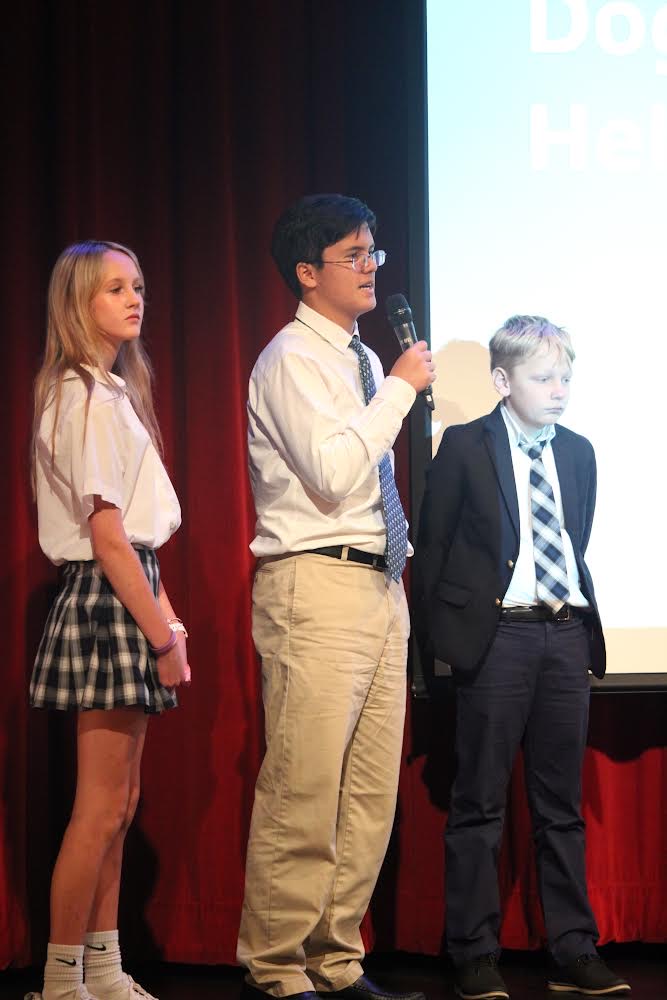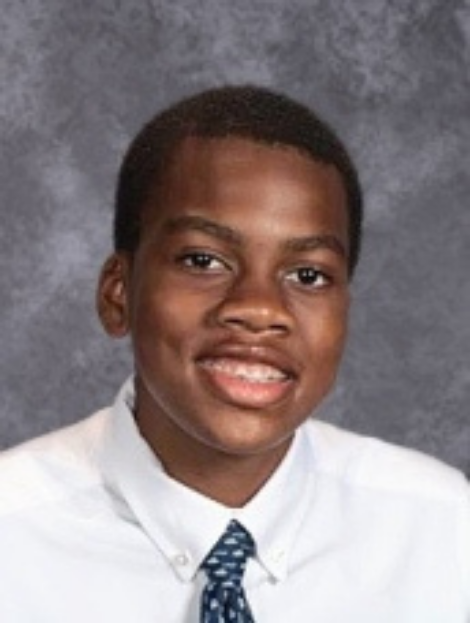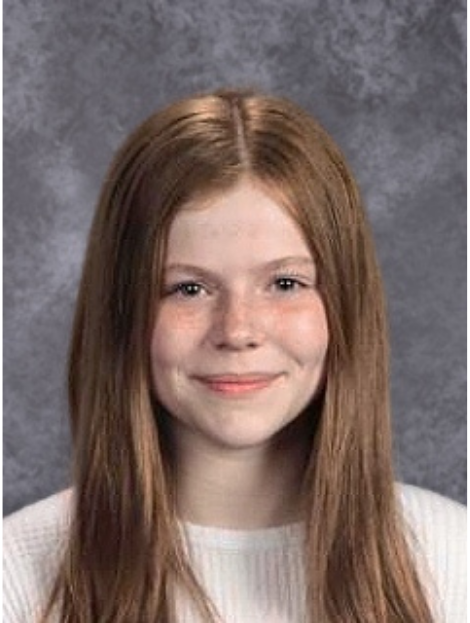At an age celebrated for both bravado and timidity, All Saints Episcopal School eighth graders have put forward their best ideas to better the city of Tyler.
Nine student teams presented their proposals to city officials TED talk-style on April 22 in hopes of seeing their ideas come to fruition. Their project is called “Our Voices for a Better City,” a collaboration between the school and social sciences students from The University of Texas at Tyler, who served as their mentors.

Head of school Mike Cobb said the students are at an optimal age to undertake such a project.
“They’re not intimidated really right now … they were thinking big,” Cobb said.
Crissy Huffman, head of middle school, agreed the eighth grade year presents unique opportunities.
“The eighth grade year … we focus on [students] knowing they are difference-makers,” she said. “This has given them an opportunity to see that I really can share my voice and my opinion. So it just seemed to fit perfectly.”
Cobb said the idea for the project began about three years ago, thanks to a conversation with then-mayor Martin Heines. Later, talks widened to include UT Tyler professors. The pandemic stymied efforts because of shutdowns, followed by the Omicron surge last winter.
Cobb conceded the project was a departure from traditional learning models.
“We could have told them what to do … and there were times I was so tempted to, but we had to let them go, let them pick [their topics] themselves. We honestly stayed out of it,” he said.
Instead, Huffman and Cobb urged students to contact city departments to discover which needs they wanted to address.
“It made them learn a whole lot more about the city,” Cobb said. “The city provided us several folks.”
Aleksandra Cregler, assistant professor of sociology at UT Tyler, said the collaboration aligned with her teaching philosophy as a sociologist and instructor.
“Sociology is mission-oriented and devoted to the practical amelioration of social problems,” she said. “With ‘Our Voices for a Better City,’ sociology students had an opportunity to do what they study. They learned that the personal needs of one individual are not very different from the collective needs of others in similar situations.”
The nine student teams had 10 minutes to present their ideas to Mayor Don Warren and city officials, followed by a question and answer session. The proposals were as follows:
Traffic light on Grande study

Students including Sachit Basoor and Ann Elise Stokeld proposed the possibility of a traffic light at the intersection of Old Noonday and Grande roads. Basoor said he learned there are seven to 12 car crashes per year at the intersection. Bassor and his teammates built a survey for residents and the neighborhood’s homeowners association to invite their input.
Stokeld said she learned there already exists a group of residents who have lobbied for the traffic light. Stokeld said the cost of installing a traffic light is in everyone’s interest, as it would be far less than the money spent in the fallout of car crashes.
Basoor said at first, his group had grand ideas that were “too big.” “And then we realized it’s not really about how big it is. It’s about the impact,” Basoor said.
Public speaking for the homeless

Michael “Caz” Franks said he and his group wish to help the homeless by providing speaking and presentation skills.
“We have figured out that the homeless rate in Tyler has been off the charts,” Franks said.
Although Franks did not know how the city might provide a setting to teach public speaking to people experiencing homelessness, he said he hoped the city would help execute their proposal.
“By giving them the skills in life, they can get jobs and make money, provide for their family, provide for themselves,” Franks said.
More resources for the homeless

Chukwuyem “Chuks” Owa said he hopes the city will provide more resources for the homeless, helping them connect to organizations such as the Salvation Army and East Texas Human Needs Network.
“As you know, the biggest thing with homelessness is that once we can get them in a house, all the other issues we can address later,” Owa said, alluding to the housing first initiative.
“Our project really is about just trying to spread awareness, so homeless people know where to go if they need help. Often, we feel like homeless people are kind of neglected,” he said.
Mental health and substance abuse resources

This team including Katie Luckenbach and Charlie Heaton want to see a therapy center for Tyler and East Texas adolescents through 26-year-olds.
“This project is targeted towards younger people, so they can have better health and a better understanding of what they’re going through,” Luckenbach said. Luckenbach said her team envisions a therapy center with experts in substance abuse who can also provide online care.
Heaton added that “probably suicide rates went up” and “it’s really hard to find a job with COVID out right now.” Heaton said he hopes the city can provide better and affordable treatment for young people.
“We’re trying to feel like these younger people are understood, because I feel like some of these old dudes wouldn’t have a clue,” Heaton said.
Walk a dog for mental health

Gracyn Hungerford and her teammates want to partner with animal shelters around Tyler to bring animals to parks and other locations. The proposal is meant to primarily assist people with mental health issues or trauma, such as war veterans.
“Another plus is that animals release endorphins and increase serotonin levels. And so that would just be a positive to helping people overall,” Hungerford said.
She said the proposal helps people while bringing awareness to animal cruelty and creating safe spaces for animals. Hungerford had the opportunity to speak to Cindy Nash of Nicholas Pet Haven. She said Nash is willing to be part of the idea.
Cleaning with meaning

Anjali Patel and her group want to help clean up Tyler and just make it a more beautiful place. Patel said she hopes to organize residents to “pick the places they think need to be more clean and more beautiful, and … go every month and clean up,” in both private and public areas. Patel said Rose Rudman walking trail in particular is an area in need of more cleaning.
Faulkner park trail

Frank Abell and his group want to improve signage on the Faulkner Park south trails.
“A couple of the ideas we had was to improve the signs because there are markers, but there could also be trash cans along these markers and even numbers. If someone were to have an accident, they could say ‘I’m at number nine on the trail, broken my arm,’” Abell said.
The smell on Cumberland Road

Aarav Patel and his group wish to partner with the city to improve the smell from the waste plant on west Cumberland Road.
Patel said he learned the smell is causing more harm than simply an unpleasant odor.
“It’s given some people headaches, so you obviously don’t want that,” he said. “A lot of people say sometimes the smells are so bad, they will take a longer drive just to skip the smell.”
The students propose the city procure a vapor phase odor control machine.
“It essentially just filters out the air from the waste plant on a very large scale,” Patel said.
Patel cited the build cost of the machine at $4.5 million and monthly maintenance at $150,000.
“Everyone loves to go to Faulkner, but sometimes the smell is just really bad,” he said.
A voice and a choice

Cobb said “Our Voices for a Better City” embodies the school’s aim.
“It is about showing the power of collaboration and empowering students to make a difference in their world,” he said.
Cobb and Huffman said they were eager to learn what the city might do after they deliberate the proposals.
“Our hope all along was to show this program to be effective,” Huffman said. Next year, maybe [we’ll see] 20, 25 groups from all over Tyler and then Smith County.
“Our big vision is that in every city, we could have something like this happening where students can really see that agency is real. They do have a voice and choice,” Huffman said.
Love what you're seeing in our posts? Help power our local, nonprofit journalism platform — from in-depth reads, to freelance training, to COVID Stories videos, to intimate portraits of East Texans through storytelling.
Our readers have told us they want to better understand this place we all call home, from Tyler's north-south divide to our city's changing demographics. What systemic issues need attention? What are are greatest concerns and hopes? What matters most to Tylerites and East Texans?
Help us create more informed, more connected, more engaged Tyler. Help us continue providing no paywall, free access posts. Become a member today. Your $15/month contribution drives our work.







